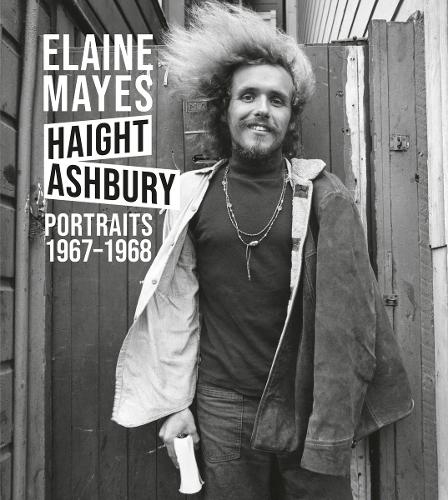
Elaine Mayes: Haight-Ashbury: Portraits 1967-1968
(Hardback)
Publishing Details
Elaine Mayes: Haight-Ashbury: Portraits 1967-1968
By (Author) Elaine Mayes
Edited by Kevin Moore
Damiani
Damiani
23rd December 2022
13th October 2022
Italy
Classifications
General
Non Fiction
Photography: portraits and self-portraiture
Photojournalism and documentary photography
779.2092
Physical Properties
Hardback
96
Width 250mm, Height 280mm
920g
Description
Elaine Mayes was a young photographer living in San Francisco's lively Haight-Ashbury District during the 1960s. She had photographed the Monterey Pop Festival in 1967 and, later that year, during the waning days of the Summer of Love, embarked on a set of portraits of youth culture in her neighborhood. By that time, the hippie movement had turned from euphoria to harder drugs, and the Haight had become less of a blissed-out haven for young people seeking a better way of life than a halfway house to runaway teens. Realizing the gravity of the cultural moment, Mayes shifted from the photojournalistic approach she had applied to musicians and concert-goers in Monterey to making formal portraits of people she met on the street. Choosing casual and familiar settings, such as stoops, doorways, parks, and interiors, Mayes instructed her subjects to look into her square-format camera, to concentrate and be still: she made her exposures as they exhaled. Mayes' familiarity with her subjects helped her to evade mediatized stereotypes of hippies as radically utopian and casually tragic, presenting instead an understated and unsentimental group portrait of the individual inventors of a fleeting cultural moment. Elaine Mayes: The Haight-Ashbury Portraits 1967-1968 is the first monograph on one of the decade's most important bodies of work, presenting more than forty images from Mayes' extensive series. An essay by art historian Kevin Moore elaborates an important chapter in the history of West Coast photography during this critical cultural and artistic period.
Reviews
A reflection of boho idealism and optimism against all odds.--Vince Aletti "ICP"
Mayes catches the individuals at the center of a whirlwind in quiet, contemplative repose, after the music, the party, the protest has stopped. The aura of the time is captured in the small details -- peace signs hanging around necks, messages scrawled on walls about love and war and religion.--Rae Alexandra "KQED"
More than half a century old, these are the freshest photos of the '60s you've likely seen, because while Mayes, whose work is held in MoMA, The Met, and The Getty, delivers the wild fashions and explosive hairstyles, she also zeros in on something that pierces the human heart.--Bill Shapiro "Esquire"
Rather than follow the story-driven approach of photojournalism, she began making documentary portraits of the people she encountered on the street with the same curiosity, tenderness, intimacy, and respect that Diane Arbus brought to street portraiture.--Sara Rosen "i-D"
It's not a slight to call these great fashion photographs: Mayes enjoys every detail of her sitters' hippie/boho looks, and that pleasure - along with genuine concern about where these kids are heading - suffuses the work.--Vince Aletti "Photograph"
Author Bio
Elaine Mayes began her career as a photographer during the early 1960s, having completed her formal education at Stanford and the San Francisco Art Institute. Working independently and on assignment for magazines, Mayes photographed aspects of the Summer of Love, including the Monterey Pop Festival of 1967 and hippies in San Francisco's Haight Ashbury District. A book of Mayes' Monterey photographs, It Happened in Monterey, was published in 2003. Mayes' photographs have been published and exhibited widely and are in the collections of The Metropolitan Museum of Art, New York; The Museum of Modern Art, New York; and the San Francisco Museum of Modern Art. She is the recipient of three National Endowment for the Arts grants and a Guggenheim Foundation Fellowship. Mayes taught for over thirty years and is Professor Emerita at New York University's Tisch School of the Arts, where she was Chair of the Photography Department from 1997 until her retirement in 2001.
